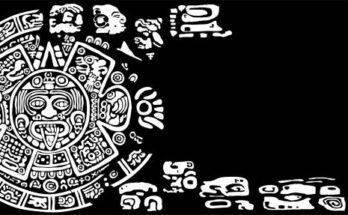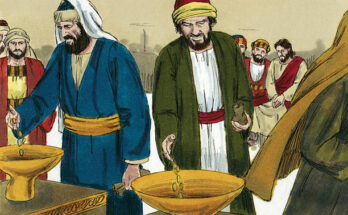In today’s globalized world, the relationship between religion and globalization is complex, filled with new possibilities and furthering challenges. Globalization, often defined as the movement of capitalism spreading across the globe, has a significant impact on cultures. As goods and finance crisscross the globe, globalization shifts the cultural makeup and creates a homogenized “global culture.” This article aims to explore the multifaceted relationship between religion and globalization, highlighting the engendering of greater religious tolerance, the backlash of religious parochialism, the reinforcement of religious identities, and the potential for interreligious dialogue to manage religious diversity.
Many theories of globalisation specifically address what could be called its ideal dimension—that is, how it affects people’s perceptions of the nature, meaning, and purpose of the world as well as their place in it. This ideal dimension can also be seen as its religious component, however this does not necessarily mean that it refers to the role that religious traditions and institutions play in it.
Globalization Engendering Greater Religious Tolerance
 (Photo from iStock)
(Photo from iStock)
Globalization brings about a culture of pluralism, where religions with overlapping but distinctive ethics and interests interact with one another. The world’s leading religious traditions, such as Hinduism, Buddhism, Judaism, Christianity, and Islam, teach values such as human dignity, equality, freedom, peace, and solidarity. These shared values, often rooted in the Golden Rule, foster greater religious tolerance.
Political Forum Integration
In the political realm, globalization has facilitated the creation of global political forums that integrate cultural, ethnic, and religious differences. International organizations like the United Nations (UN), the World Health Organization (WHO), the European Union (EU), the Organization of the Islamic Conference (OIC), and the African Union (AU) share commitments to peace, human dignity, equality, and conflict resolution. Religious communities, such as the Roman Catholic Church, the World Council of Churches, and the Jewish Diaspora, also participate in international affairs, advocating for poverty relief, health care, and development agendas.
Economic Growth and Spread of Religions
Economically, globalization has enabled the growth of major religions by providing them with increased financial resources. Transnational corporations, taking over the role of the state in the economic sector, contribute to the financial prosperity of religions. Missionary work, especially in Third World countries, helps religions spread their beliefs globally, leading to the scattering of major religions across different regions. Technological advancements, such as websites and television channels dedicated to religious teachings, further contribute to the global spread of religions.
Globalization Creating Backlash of Religious Parochialism
While globalization engenders greater religious tolerance, it also gives rise to a backlash of religious parochialism. The disruption of traditional communities, economic marginalization, and mental stress caused by globalization lead individuals to seek solace in religion, which provides a sense of security, stability, and simple answers.
Disruption of Traditional Communities
As individuals lose their sense of identity tied to citizenship, nationality, and immigration. Religious groups offer a sense of belonging and a return to traditional values and norms. The comfort derived from being part of a religious group helps individuals cope with the loss of their protective cocoon and find themselves in modern times.
Economic Marginalization and Cultural Protection
 (Photo from iStock)
(Photo from iStock)
Economic marginalization, brought about by transnational corporations and the widening gap between the haves and have-nots, reinforces cultural protection against globalization. Religions play a social role by providing welfare and acting as a cultural protection against Western imperialism and Americanization. Religious organizations engage in poverty relief, healthcare, and environment problems, drawing massive followers who find hope and economic relief in religion.
Mental Stress and Inner Peace
Globalization also causes mental stress, as individuals worry about job insecurity and their material possessions fail to bring inner peace. Religion offers a way to find spiritual support, inner peace, and personal fulfilment in times of insecurity. Praying to God and engaging in community involvement provide a sense of satisfaction and purpose beyond material possessions.
Religious Identity and Globalization: Furthering Challenges
Religious identity, shaped by globalization, becomes a major ingredient in reducing the self and the other to a number of cultural religious characteristics. The notion of “truth” inherent in religions creates a sense of exclusivity and reinforces specific identities. Globalization brings religions into a circle of competition and conflicts.
Cultural Religious Characteristics and Conflict
 (Photo from iStock)
(Photo from iStock)
Globalization has led to the linking of Islam with terrorism and the perception of Western imperialism and Americanization by marginalized communities. These cultural religious characteristics become rallying points for conflicts and discrimination. Against those who do not adhere to a particular truth. Attacks against Muslims, Kurds, and Jews based on cultural religious characteristics highlight the divisive nature of religious identities reinforced by globalization.
Religion as a Unifying Force
However, religions have the potential to overcome these challenges through interreligious dialogue and a focus on shared values. They have exemplified how religious ideals can be used to promote nonviolence and social justice. Their reinterpretation of religious narratives and invocation of shared values demonstrate that religions can engage in dialogue and transcend their differences.
Conclusion
The relationship between religion and globalization is complex, marked by the engendering of greater religious tolerance. And the backlash of religious parochialism. Globalization allows religions to interact. Fostering a culture of pluralism and shared values. However, it also reinforces religious identities and cultural religious characteristics. Leading to conflicts and discrimination. Interreligious dialogue and a focus on shared values can help religions manage religious diversity. And promote peace and social harmony in a globalized world.
Overall, the impact of globalization on religion is significant and multifaceted, shaping the way individuals understand and practice their faith. By recognizing the complexities of the relationship between religion and globalization. Societies can work towards greater understanding, tolerance, and cooperation among diverse religious communities.
This is because such problems of ultimate concern or purpose frequently arise as defining elements of religion. The interpretations of this aspect of globalisation can be categorised based on whether it is viewed as a good or bad thing, and whether there is a predominance of unity or variety of perspective.




